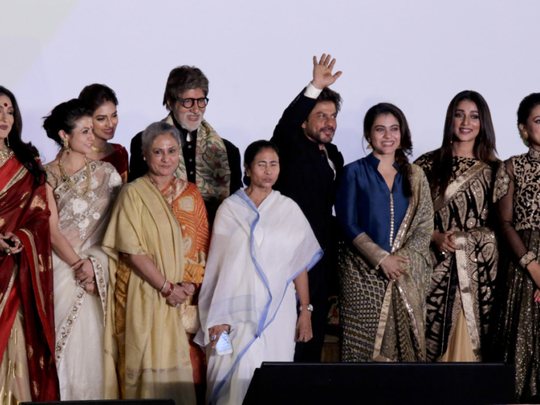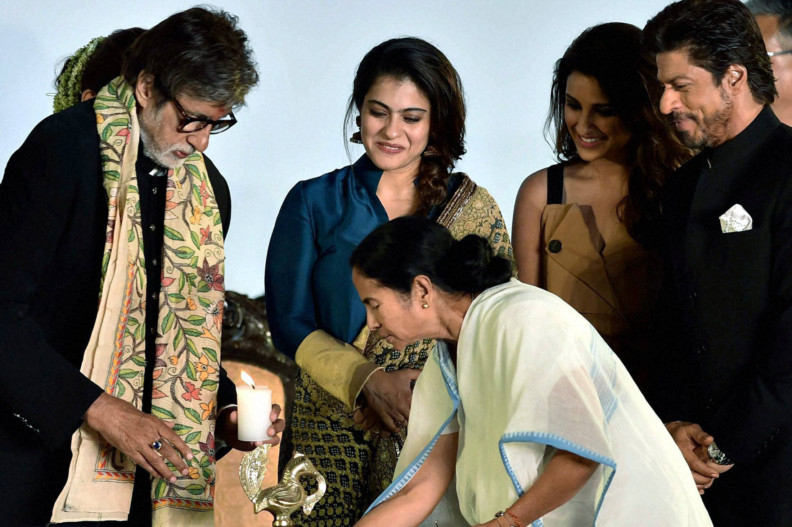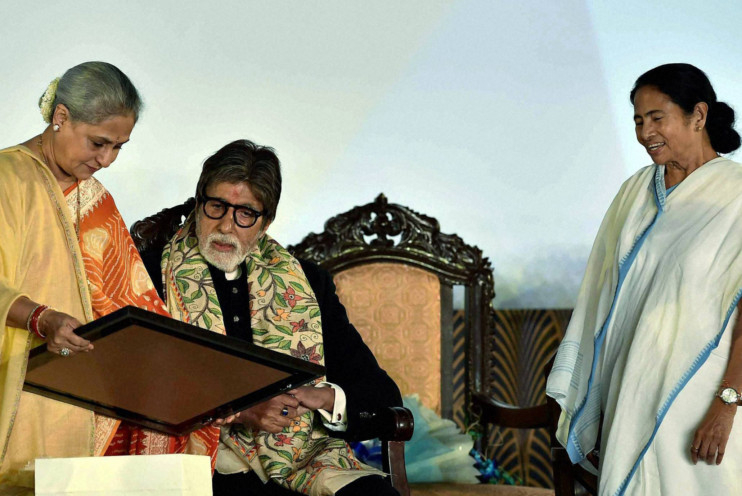
Amitabh Bachchan on Friday said the issue of sexual violence and sexual consent has largely been ignored by the Indian film industry, in Kolkata.
Bachchan analysed the changing role of women in Indian cinema at the inauguration ceremony of the 22nd edition of the Kolkata International Film Festival here.
“Meenal Arora, Falak Ali and Andrea Tariang [characters in Pink] are to all intents and purposes emancipated women with all liberties accorded by their financial independence. Yet the film raises unsettling queries largely ignored by our film industry. Pink brings the issues of sexual violence and sexual consent into urban middle class homes,” he said.
Talking about films such as Udta Punjab and Parched which deal with sexual violence, Bachchan said these films provokes the audiences to question whether education has changed the way women are treated in urban India or not.
“The Age of Consent Act was legalised over 125 years ago in 1891. How many times has the value of consent been taken for granted in our society? How many times has our culture considered consent and specifically sexual consent important enough to be acknowledged and discussed? How many times has ‘No’ meant ‘No’,” he asked.
Citing examples of Indian films such as Achhut Kanyya, Satyajit Ray’s Ghare Baire, Mahanagar, Abhimaan, Shyam Benegal’s Ankur, Gulzar’s Aandhi and to more recent endeavours such as Lajja, Paa, Mardaani, Mary Kom, Queen, Piku, Nil Battey Sannata and the latest Ae Dil Hai Mushkil, Bachchan highlighted how women’s portrayal in Indian cinema had changed from the stereotypical housewife to strong and independent characters fighting for their rights.
“Even the word mardaani is derived from the word mard... the word which is a description of male valour and strength. Why is there not an independent word for female valour? This is something which I feel needs debate and consideration,” said Bachchan, a UN ambassador for the girl child.
Bachchan also batted for equal opportunities for women in India’s workforce to thundering applause from the audience at the Netaji Indoor Stadium.
He kicked off the seven-day fest, organised by the West Bengal government, with the lighting of a ceremonial lamp. This was preceded by a performance by fusion orchestra led by Pandit Tanmoy Bose and folk artistes from Bengal.
The opening ceremony was also attended by his wife and veteran actress Jaya Bachchan, Shah Rukh Khan, Sanjay Dutt, Kajol and Parineeti Chopra.
Actors from the Bengali film industry presented their Bollywood counterparts with traditional Patachitra art works and paintings by West Bengal Chief Minister Mamata Banerjee, who presided over the ceremony.
Khan, also Bengal’s brand ambassador, gave a speech and spoke a little bit of Bengali.
“How can I come to Kolkata and not speak Bengali? Is this possible? I hope you will forgive me for my Bengali,” the Dilwale actor said.
Dutt expressed gratitude to Banerjee for standing by him during the “hardest of times”.
“In the hardest times of my life, Banerjee stood by me and my family. I have a special bond with Kolkata. My mother was born here and my grandmother lived here. I will be here whenever I am needed,” he said.
Kajol also gave a short speech. “Two things in our country we actually revere: cinema and religion,” Kajol said, adding the films showcased should be for everyone.
On a more sombre note, National Award-winning filmmaker Goutam Ghose advocated universal brotherhood through cinema.
“We are passing though intolerance, political and cultural intolerance. We are dividing ourselves, spreading hatred all over the world. Let’s make cinema a vehicle for raising positive emotions over the negative ones,” he said.
China was chosen as the country in focus at the film festival.
Banerjee, who welcomed the Chinese delegation, stressed on inclusivity at the film festival.
During the course of the festival, 155 films from 65 countries will be showcased across 13 venues until November 11.
“Cinema speaks a language that no other medium can. This is a festival of the people, by the people, for the people,” said Banerjee.













